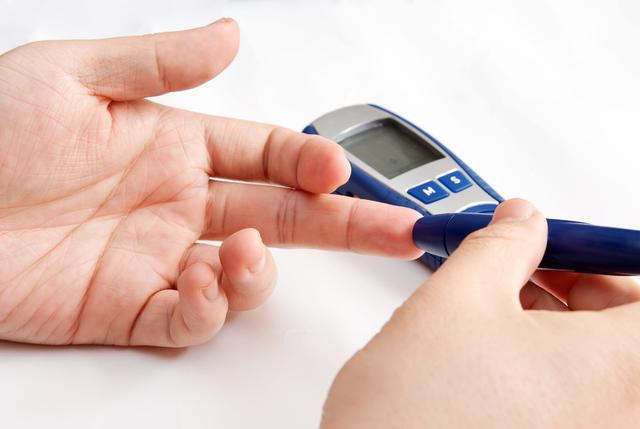What about persistent early morning fasting hyperglycemia?
Often, diabetic friends ask.
"Dr. Sun, what's wrong with my fasting blood sugar that won't come down? Other times of the day are fine, just not fasting."
This is actually a relatively common problem that has become more and more apparent as diabetic friends have been monitoring their blood glucose more often in recent years.
Why didn't we find this problem before? It is because the number of blood glucose checks in the past was very small, and diabetic friends, including medical staff, did not have enough awareness of the importance of postprandial blood glucose. With very little postprandial blood glucose checking, they naturally did not think that high breakfast blood glucose was a problem, and just assumed that their blood glucose control was relatively poor, and continually asked their doctors to adjust the dosage of medication to bring down their blood glucose.
There are actually many different reasons for high fasting blood sugar; diet, exercise, sleeping, mood, medication, etc. can all contribute to changes in blood sugar.
So if you want to solve the problem of high blood sugar in the early morning fasting, you must look at the above factors to find the cause of elevated blood sugar.
Diet:Elevated blood glucose can occur when you eat too much or too little at dinner on the first day. If you eat too much, your postprandial blood glucose will be too high, leading to elevated nighttime and early morning blood glucose. If you eat too little, you will experience hypoglycemia at night, and your blood glucose will rise due to the Summertime reaction, which leads to an increase in adrenaline and glucagon, and the breakdown of hepatic glycogen.
Movement:Excessive exercise can also lead to the possibility of hypoglycemia and thus fasting hyperglycemia.
Go to sleep:Patients who sleep poorly may experience fasting hyperglycemia.
Mood:A bad mood may affect the patient's ability to sleep and also affect blood sugar.
Medication:It is the most important cause of blood glucose changes, but of course it can also be too much or too little medication that causes blood glucose to drop too quickly and hypoglycemia to occur, or too little medication that causes blood glucose to be consistently elevated at night.
From the above analysis, it can be seen that either high blood sugar or low blood sugar at night may cause high fasting blood sugar in the early morning, so it is necessary to avoid both of the above situations. Maintain regular diet, exercise and life habits, keep stable emotions and ensure sleep, so that the detection of nighttime blood glucose, usually checking the blood glucose before bedtime and at 3:00 at night, together with the early morning blood glucose, you can get a curve of blood glucose changes. Or perform dynamic blood glucose monitoring, may also get a blood glucose curve, can be more accurate to know the change of blood glucose at night.
If hypoglycemia occurs at night, it is necessary to carefully check the above several possible causes, such as adjusting diet, exercise, improving sleep, etc. If it is caused by drug factors, it is necessary to reduce the medium- and long-acting drugs before bedtime or lunch, so that the reduction of medication can also play a role in lowering blood glucose. On the contrary, if the blood sugar is higher at night, the therapeutic drugs should be increased.
I'm Dr. Sun, pay attention to Dr. Sun talk about sugar, continue to learn more quality health knowledge, help please like, have questions please leave a message, will reply!
Generally we believe there are three causes of stubborn fasting hyperglycemia:
Inadequate nocturnal insulin application.
Dawn phenomenon: i.e., good glycemic control at night and no hypoglycemia occurs, only with a short period of high blood glucose at dawn, probably due to increased secretion of cortisol and growth hormone in the early morning.
Somogyi phenomenon: i.e., hypoglycemia has occurred during the night, unnoticed during sleep, but resulting in an increase in the body's secretion of insulin-antagonizing hormones, followed by rebound hyperglycemia after hypoglycemia.
Generally, blood glucose is measured several times during the night (at 0:00, 3:00, and 6:00) to identify the cause of that kind of cause, and if the blood glucose is high during the night then it is the first kind, and it is recommended to increase the insulin dosage.
If nocturnal hypoglycemic episodes occur, it is recommended to reduce the insulin dosage.
If nighttime blood glucose is normal, it is a dawn phenomenon.
Feel free to follow me if you find my answers useful, specializing in medical science.
Change all of the above eating habits, three meals a day to change other foods, such as mixed grain buns, mixed grain porridge, roti cabbage bitter melon yam more to eat
This question and answer are from the site users, does not represent the position of the site, such as infringement, please contact the administrator to delete.